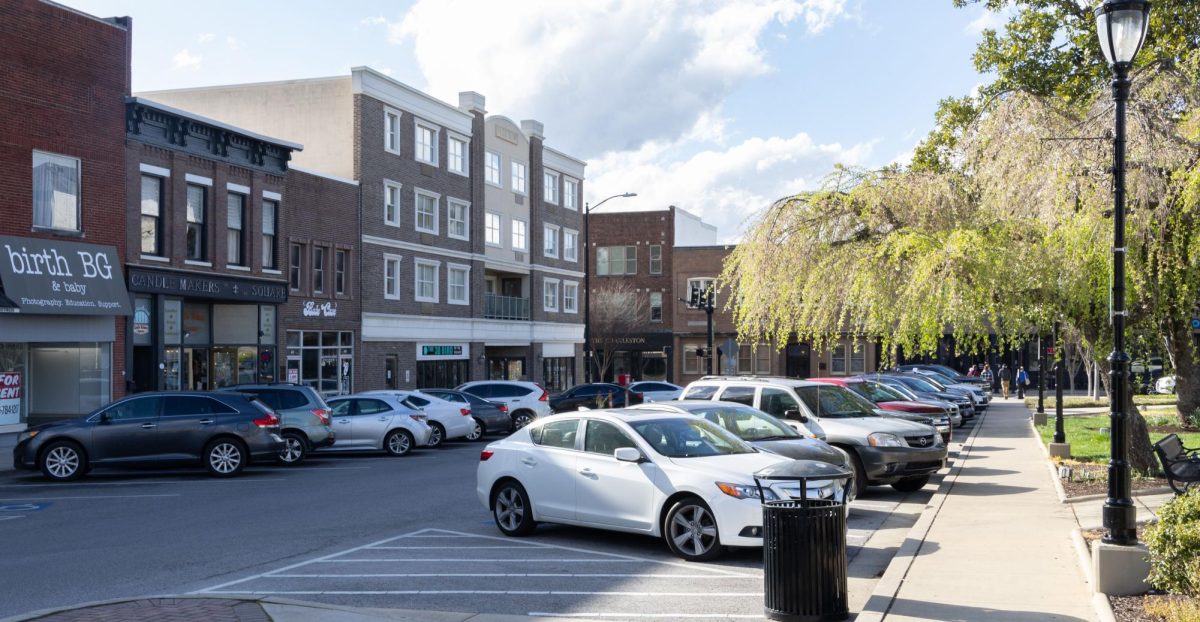Former student explains health struggle and faith
April 2, 2019
Pain, hospitals, fruits and vegetables are all things 25-year-old Mallory Jenkins knows well.
In 2013, Jenkins was diagnosed with a pseudopapillary tumor, a rare tumor in the pancreas that is typically found in young women. She was only 20 years old and a junior at WKU. She was forced to drop out of college and move back home to Elizabethtown.
In her time at WKU, Jenkins was a dean’s list student and said she loved everything about it. When she had to leave, she said she hoped she would soon be able to return and be with her friends at a campus she loved.
“When I left, it wasn’t a goodbye, but a see you later,” Jenkins said in an email. In October 2013, Jenkins had her first surgery — the Whipple surgery. The procedure removed part of her pancreas, some of the bile duct and gallbladder and in some cases, part of the stomach. But she was still in pain.
She said it was only six weeks later that complications with pancreatitis began and the pain got worse.
“Within one year, my life was stripped of comfort, purpose, my dreams and my health,” Jenkins said. “I quickly went from a super healthy, busy, strong, active 20-year-old to a sick, dying patient who couldn’t even bathe herself.”
After a hospital visit in February 2014, Jenkins said she wasn’t able to eat any food by mouth for around 300 consecutive days. In late 2014, she underwent a procedure to completely remove her pancreas in hopes it would help with the pain. Half of her pancreas had already been removed in the Whipple surgery.
“It was either continue with a miserable, slow death from a sick pancreas or take the chance of going through the surgery and brutal recovery to hopefully discover a better chance at life,” Jenkins said.
The next two years were hard for Jenkins. She said she could not “describe the misery of that time.” She couldn’t eat without severe pain, nausea and vomiting. Her weight had dropped down to only 85 pounds, and she said she was living on broth and pureed vegetable soups.
Jenkins was also diagnosed with gastroparesis, a chronic condition that causes a severe delay in digestion or even complete inability to digest foods.
From 2017 to now, Jenkins said she is continuing to heal and find her new normal. She said her quality of life is better now, and after five-and-a-half years on her journey, she is still learning. Her body has its good days and its bad days, so she can’t commit to anything consistently, Jenkins said.
Jenkins focused on what went into her body and what helped her body the most. She said she’d been learning about plant-based nutrition and how to use food as medicine. She said she loves juicing and sharing it with others. She said the fact that she is finding her normalcy and continuing to grow stronger is “nothing short of a miracle.”
Jenkins said she had a great support team that helped her through her pain and sadness. She said her husband, Tyler, her brothers, family and friends helped her immensely, but she said she especially had a lot of faith in God’s strength.
“My faith in God is 100% what pulled me through,” Jenkins said. “He taught me that when I am weak, He is strong. When I feel I am alone, He is with me. When I don’t think I can keep going, He will carry me through the storm.”
Jenkins will be speaking at the Panhellenic Worship Night in the Faculty House behind Cherry Hall on Thursday.
“We will be hearing her story and how God has used trials in her life to grow her faith and her love for God’s word,” event coordinator Madeline Brennan said.
Jenkins writes about her journey on her website.
Features reporter Taylor Metcalf can be reached at 270-745-6291 and [email protected].




















![Megan Inman of Tennessee cries after embracing Drag performer and transgender advocate Jasmine St. James at the 9th Annual WKU Housing and Residence Life Drag Show at Knicely Conference Center on April 4, 2024. “[The community] was so warm and welcoming when I came out, if it wasn’t for the queens I wouldn’t be here,” Inman said.](https://wkuherald.com/wp-content/uploads/2024/04/smith_von_drag_3-600x419.jpg)




